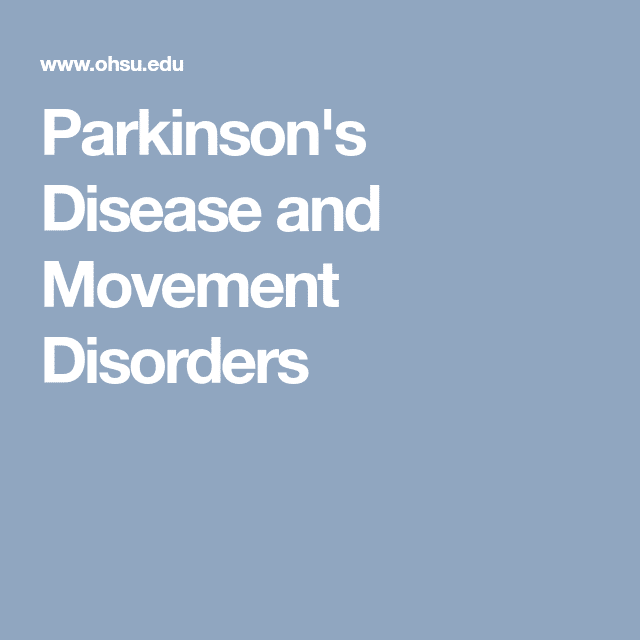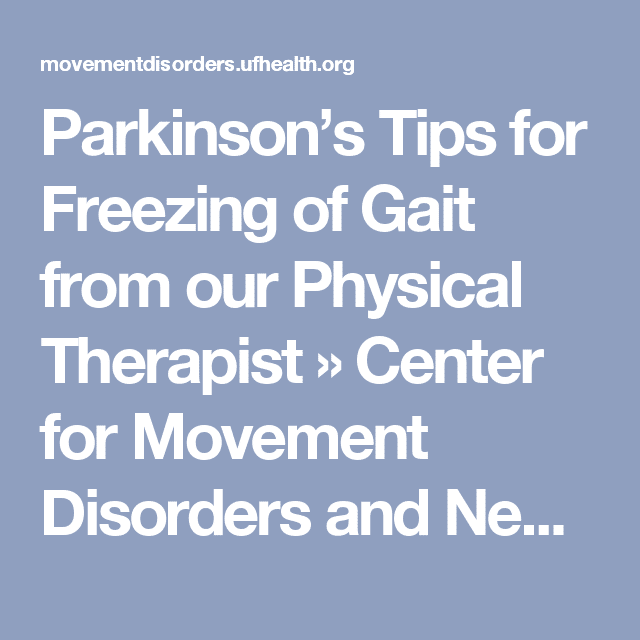Connections To National Research Give Patients Opportunity Here
Our active research program has been focused on the study of neurodegenerative diseases and breakthrough treatments for Parkinsons disease and Huntingtons disease through local and North American-wide networks including the Parkinsons Study Group, Huntington Study Group, and NeuroNEXT.
20 clinical trials10,0006
A Brief History Of Pd& mdc
The PD& MDC was founded at the late, great Graduate Hospital in 1982 by Drs. Howard Hurtig and Matthew Stern, and Nurse Gwyn Vernon, as a center to provide comprehensive care and education to patients and families, and to conduct clinical and basic research in collaboration with basic scientists at the University of Pennsylvania School of Medicine . After 15 years of steady and expanded growth of its fundamental mission, the PD& MDC moved in 1997 to the Penn Neurological Institute at Pennsylvania Hospital, where patient services and program development accelerated to achieve its current status as one of premier facilities of its kind in the US and a Parkinson Foundation Center of Excellence. PD& MDC is also a Huntington’s Disease Society of America Center of Excellence, a Lewy Body Dementia Association Research Center of Excellence and a CurePSP Center of Care.
DR. HURTIG AND DR. STERN, CO-FOUNDERS PD& MDC
PD& MDC is now directed by Dr. Andrew Siderowf, MD, a Movement Disorders Specialist whose research focuses on the organization and conduct of clinical trials. Dr. Siderowf is the national Co-PI for the Parkinson Progression Marker Initiative study, and the Co-PI for the UPenn NeuroNEXT clinical site. He also serves on the steering committee or safety monitoring boards of several other ongoing multi-center clinical trials.
DR. ANDREW SIDEROWF, DIRECTOR OF PD& MDC
What Causes Parkinsons Disease
PD occurs when specific neurons in the brain decay and die, leading to abnormal brain functioning and impaired movements. The exact causes of PD are unknown, but there are at least 2 known factors that play a role in the development of PD.
Genetics: the first risk factor for PD is genetics. Research has identified certain gene variations that appear to be associated with an increased risk of PD. There are also certain genetic changes that are linked to PD.
Chemical Exposure: recent medical research has discovered that long-term exposure to certain toxic chemicals, including pesticides and herbicides, may cause PD.
There are a number of more general risk factors for PD that should be mentioned. These are age and gender. Old people are more likely to develop PD and the average age at diagnosis is over 60. Men are also more likely to get PD compared to women.
You May Like: Does Jesse Jackson Have Parkinsons
Movement Disorders Center Main Menu
The most important part of the treatment plan for anyone affected by Parkinson’s disease or other movement disorder is a dedicated team of specialists who can monitor your progress and support your optimal health with the latest therapies. Led by Kelly Mills, M.D., the director of the movement disorders division, our team of neurologists, neurosurgeons, psychiatrists, fellows, nurse practitioners and nurses work together to help you explore your treatment options.
Expertise, Disease and Conditions:Expertise, Disease and Conditions:Expertise, Disease and Conditions:Expertise, Disease and Conditions:Expertise, Disease and Conditions:Expertise, Disease and Conditions:Expertise, Disease and Conditions:Expertise, Disease and Conditions:Expertise, Disease and Conditions:
For Parkinsons Disease Patients Going To The Hospital

Individuals with Parkinsons Disease must take medications on their schedulenot according to hospital routine or convenience. If they do not receive medications on their specific timetable, they may experience breakthrough symptoms. In consultation with medical experts and the medical centers Parkinsons Disease Patient Family Advisory Council, Cooperman Barnabas Medical Center offers the following tips for Parkinsons Disease patients who go to the ER or are admitted to the hospital:
- Bring a list of all medications including dosages and specific times you take them.
- Bring contact information for the neurologist or movement specialist who is treating your Parkinsons.
- If possible, pack Parkinsons medications in the original packaging for use if they are not available in the hospital pharmacy.
- Verbalize or have a list of key symptoms you experience when medications are wearing off, so the staff is fully aware of what to look out for when doing assessments.
- Bring an emergency contact list, your contact information and, if applicable, a health care proxy card or living will.
- Ensure physical therapy is ordered during a hospital stay to prevent muscle de-conditioning.
- Dont hesitate to advocate for yourself.
For more information, or to make an appointment with one of our specialists, please call.
You May Like: Do Parkinson’s Patients Hallucinate
Restoring The Quality Of Life You Deserveinova Parkinson’s And Movement Disorders Center
Be it Parkinson’s disease, essential tremor, dystonia or other movement disorders, the Inova Parkinson’s and Movement Disorders Center provides comprehensive care designed to get you moving again.
From the first moments you meet with one of our specialists, you will understand our team’s dedication to individualized care. Each person has his or her own unique brand of Parkinson’s, essential tremor, dystonia, Huntington’s disease or tic disorder and deserves a personalized treatment plan to address specific needs. Our experienced movement disorders team will work with you to chart a path to better health.
New Study Puts Gut Microbiome At The Center Of Parkinson’s Disease Pathogenesis
by Bob Shepard, University of Alabama at Birmingham
New research from the University of Alabama at Birmingham says the gut microbiome is involved in multiple pathways in the pathogenesis of Parkinson’s disease. The findings, published in Nature Communications, show a wide imbalance in microbiome composition in persons with Parkinson’s disease. The study is the largest microbiome study conducted at the highest resolution.
The investigators employed metagenomics, the study of genetic material recovered directly from the stool microbiome of persons with PD and neurologically healthy control subjects.
“The primary aim of this study was to generate a full, unaltered view of the imbalance in PD gut microbiome,” said Haydeh Payami, Ph.D., professor in the Marnix E. Heersink School of Medicine Department of Neurology and senior author on the study.
The study reports Parkinson’s disease metagenome is indicative of a disease-promoting microbiome.
“We found evidence for multiple mechanisms that we know are linked to PD, but we didn’t know they were happening in the gut also and are orchestrated by the microbiome,” Payami said.
The researchers studied 257 species of organisms in the microbiome, and of these, analysis indicated 84, more than 30%, were associated with Parkinson’s disease.
“This is exciting research, as metagenomics is a new, albeit fast-evolving field, and the resources, methods and tools, while state-of-the-art, are still in development,” Payami said.
More information:
You May Like: Are The Symptoms Of Parkinson’s Disease
Specialized Customized Care For Your Needs
Our goal is the same as yours to rid you of the symptoms of your condition. We accomplish this through the latest targeted medication to enhance your natural neurochemistry, combined with disease-specific physical, occupational and speech therapy. If medications are not effective, the specialists at Inova are uniquely trained to use deep brain stimulation , intestinal gel and targeted botulinum injections to improve your quality of life.
Our multidisciplinary team of neurologists, neurosurgeons, neuropsychiatrists, neurophysiologists, and physical, occupational and speech therapists have dedicated their careers to understanding and treating:
Treatment Options For Parkinsons Disease
There is no effective treatment to cure or reverse the degenerative process inside the brain that causes PD. Treatment for PD is aimed at helping to alleviate the symptoms caused by the condition.
Medication is the primary treatment option for PD. Medication can be used to help manage the movement difficulties associated with PD. Unfortunately, the effectiveness of these medications diminishes over time.
Don’t Miss: Is Dementia Part Of Parkinson’s
Paraquat Parkinsons Disease Lawsuits
Paraquat is an industrial-strength herbicide that is used in commercial agriculture. Over the last decade, a growing body of research has emerged which shows that chronic exposure to Paraquat can significantly increase the risk of Parkinsons disease.
This new evidence about the link between Paraquat exposure and PD has prompted a wave of Paraquat lawsuits. These Paraquat lawsuits are being filed by individuals who were exposed to Paraquat while working on a farm and were subsequently diagnosed with PD. The lawsuits allege that the manufacturer of Paraquat knew about the risk of PD and failed to warn.
Parkinsons Disease and Camp Lejeune
Camp Lejeune is a big military base in North Carolina. From 1963 to 1987 the water supply at Camp Lejeune was highly contaminated with a number of highly toxic chemicals. Subsequent health studies have shown that exposure to this toxic water increased the risk of certain diseases.
Parkinsons disease is one of the diseases that has been specifically linked to the contaminated water at Camp Lejeune. Both the ATSDR and VA have named Parkinsons disease as one of the health conditions that is presumptively connected to Camp Lejeunes water.
A new federal law passed this year is allowing victims of the Camp Lejeune water contamination the right to bring civil lawsuits for their injuries. Parkinsons disease is one of the most common injuries alleged by plaintiffs filing a Camp Lejeune lawsuit.
Advanced Treatment And Support For Movement Disorders At Bidmc
All providers in our center are currently offering telehealth virtual visits. Please call to schedule an appointment.
The Parkinson’s Disease and Movement Disorders Center at BIDMC brings together an exceptional team of multidisciplinary providers to offer personalized care and the most advanced treatment to patients with Parkinson’s disease, Huntington’s disease, dystonia, tremors, atypical parkinsonism, and various other movement disorders. In addition to providing world-class care, our team provides educational and support resources, offers specialty appointments at an Interdisciplinary Clinic, and is actively involved in groundbreaking clinical trials. We respect all people.
Don’t Miss: Does Parkinson’s Cause Difficulty Swallowing
Center For Neurorehabilitation At Boston University Sargent College Of Health & Rehabilitation Sciences
The Center for Neurorehabilitation at Boston University, Sargent College of Health & Rehabilitation Sciences is comprised of a team of clinicians and researchers with expertise in rehabilitation and movement science. The Center offers clinical, educational and research opportunities to persons with Parkinsons disease. Rehabilitation programs have been developed based on best evidence from the literature including the research conducted within the Center for Neurorehabilitation in collaboration with the BU Parkinsons Disease and Movement Disorders Center.
Comprehensive consultations with a physical therapist are offered and individualized treatment programs are developed. Exercises designed specifically to address issues commonly experienced by people with Parkinsons disease are incorporated into rehabilitation programs. In addition, community wellness programs for people with Parkinsons disease have been developed and are currently implemented at the Center for Neurorehabilitation and in a variety of local communities. Educational programs are conducted periodically both for health care professionals and for people with Parkinsons disease. Please see the Center for Neurorehabilitation website or call 353-7525 for additional information.
Apda Information & Referral Center

The Information & Referral Center, located at Boston University Medical Center, was established by the American Parkinson Disease Association in 1980. This Center serves as a resource for those with Parkinsons disease and their loved ones as well as healthcare providers. Patients, caregivers, healthcare providers and the greater community can receive support regardless of their affiliation with Boston University Medical Center or any other medical facility.
Also Check: Oils For Parkinson’s Disease
A Multidisciplinary Approach To Care
Parkinsons disease is a condition that can affect different aspects of your life, including mobility, mood, and sleep. We work with a highly trained and dedicated team of specialists that are all focused on helping you live better with Parkinsons disease.
- A Nurse can help your physician provide you the best care and address concerns about medications and other Parkinsons-related symptoms.
- A Physical Therapist can evaluate and treat you to optimize your mobility, physical activity, and safety.
- An Occupational Therapist can help you stay active and independent in your daily activities.
- A Speech Therapist can evaluate you and provide recommendations and treatment if Parkinsons is affecting your speech or swallowing.
- A Social Worker can answer your questions and provide counseling about life transitions, options if you need help with your care, and financial and work-related issues.
- A Spiritual Care Provider can offer support and facilitate positive spiritual coping if you are struggling with your illness.
You have changed my life. I started using the MGH PD Exercise videos on New Year’s Day and have exercised every day since then even when I got my first COVID vaccine jab and had a very sore arm. Now, I actually look forward to my exercise sessions with you… I am stronger, more flexible, have better stamina and am healthier both physically and emotionally because of your work.
- Medication-induced movement disorders
Treatment For Parkinsons Disease
Patients benefit from an integrated approach to care. At Cooperman Barnabas Medical Center, individuals with a diagnosis of Parkinsons disease or other movement disorder are evaluated by movement disorder specialist,Arash Fazl, MD, PhD., a Barnabas Health Medical Group provider. Although there is no known cure for Parkinsons, there are various avenues of treatment. Medical management is the foundation of movement disorder care. There are a variety of medications available to help provide symptomatic relief, especially in the early stages of the disease. Additionally, there are a large number of ongoing clinical trials which include disease modifying agents that can slow, stop or reverse the progression of the disease.
Cooperman Barnabas Medical Center also offers deep brain stimulation surgery. DBS is an established treatment reserved for individuals who are unable to control their disease with medication alone. Dr. Fazl partners with neurosurgeonPaul Gigante, MD, to offer deep-brain stimulation to his patients.
Read Also: Is Leg Pain A Symptom Of Parkinson’s Disease
What Is Parkinsons Disease
Parkinsons disease is a condition in which certain cells inside the brain decay and stop working properly. The specific brain cells impacted by PD are those that are responsible for the control of muscle movements. The deterioration of these cells impair the ability of the brain to send movement and coordination commands to the muscles in the body. As a result, individuals with PD suffer from non-voluntary or uncontrolled body movements such as shaking, tremors, stiffness or rigidity, and lack of coordination.
PD is a progressive disorder that gradually gets worse and worse over time. The movement symptoms associated with PD get significantly more pronounced as the disease continues to progress. Eventually, in the end stages of PD the brains ability to control muscle movements becomes so impaired that individuals may be unable to walk and perform other vital functions.
Symptoms Of Parkinsons Disease
The specific symptoms of PD will vary in each person, but they primarily involve involuntary movements of the body. Some of the earliest symptoms on PD may be barely noticeable. Symptoms typically begin on one side of the body.
Common symptoms associated with PD include:
- Tremors / Shaking: uncontrollable tremors or rapid shaking usually occurs in the hands and limbs. The shaking is usually more pronounced when the limbs are at rest.
- Slow Movement: PD gradually slows down movement of the body, making it much more difficult to perform simple tasks such as walking or getting dressed.
- Muscle Stiffness: excessive rigidity or stiffness in the muscles may occur in certain parts of the body. This can be very painful and make movement difficult.
- Impair Reflex Movements: people with PD often loose the ability to perform automatic or reflect body movements such as eye blinking or smiling.
- Speech Impairment: PD usually has some impact on a persons speech.
Also Check: What Is Deep Brain Stimulation For Parkinson’s Disease
Services Provided By The Apda Information And Referral Center Include:
- A telephone helpline
- A comprehensive resource referral network
- Support group assistance
Other services provided by the Information and Referral Center
- Implementation of regional conferences
- Participation in community awareness and public relations activities
- A Monthly Electronic Newsletter
- Maintenance of a state-wide website: www.apdama.org
If you would like to visit us in person, or for questions regarding education, support groups, conferences, community activities, etc., please call the APDA Information & Referral Center at 638-8466 or 651-8466.
Research & Clinical Trials
Our team of physicians is actively involved in research to better understand the causes of Parkinsons disease and to identify new treatments. Since 2013, MGH has been the home to the Parkinson Study Group, the largest not-for-profit network of Parkinsons centers in North America. As a patient, you may have the opportunity to participate in:
- Clinical trials for new investigational drugs
- Research studies to find new and better ways to diagnose and monitor Parkinsons disease
- Studies that improve delivery and quality of care for Parkinsons patients
If you are interested in volunteering for research, please ask to speak with a research coordinator or browse our list of movement disorders clinical trials.
Also Check: How Does Levodopa Help Parkinson’s Disease
The Cole Center Designated A Parkinsons Foundation Comprehensive Care Center
The Cole Center for Parkinsons & Movement Disorders at The University of Tennessee Medical Center has been selected to join the Parkinsons Foundation Global Care Network as a Comprehensive Care Center. The Cole Center is proud to join this larger Parkinsons network and make a difference in Knoxville and East Tennessee by providing comprehensive care to people living with Parkinsons Disease.
The Parkinsons Disease And Movement Disorders Center At Uconn Health Provides Multidisciplinary Patient

Our program is designed to integrate patient care, research, and education in the field of Movement Disorders. Our academic medical center is responsible for training medical students, residents, and fellows in Neurology and Movement Disorders.
Our specialists integrate the care of patients, caregivers, and families with doctors, nurses, social workers, therapists, neuropsychologists, and rehab teams to provide personalized, comprehensive care.
Read Also: When Was Michael J Fox Diagnosed With Parkinson’s
